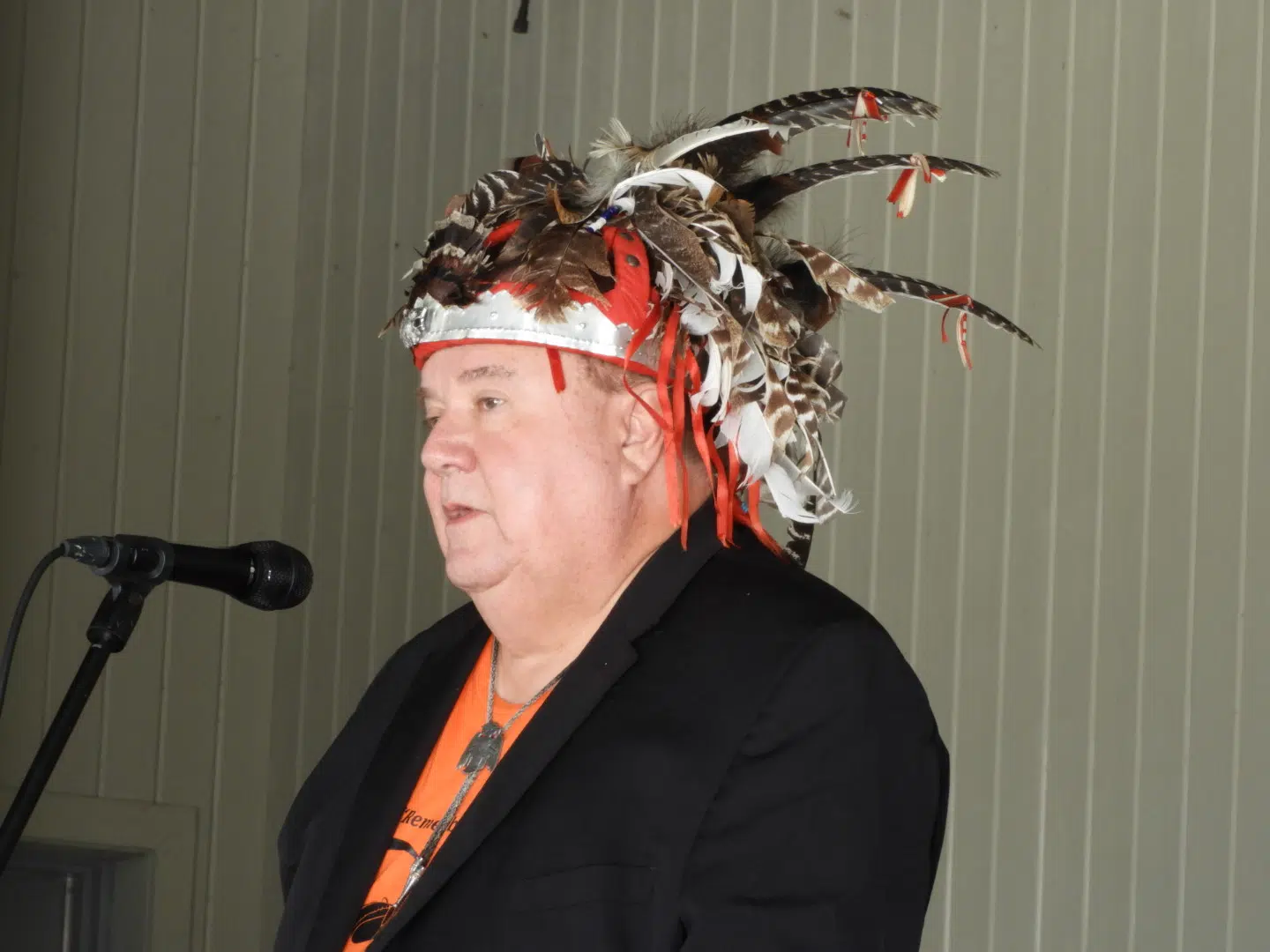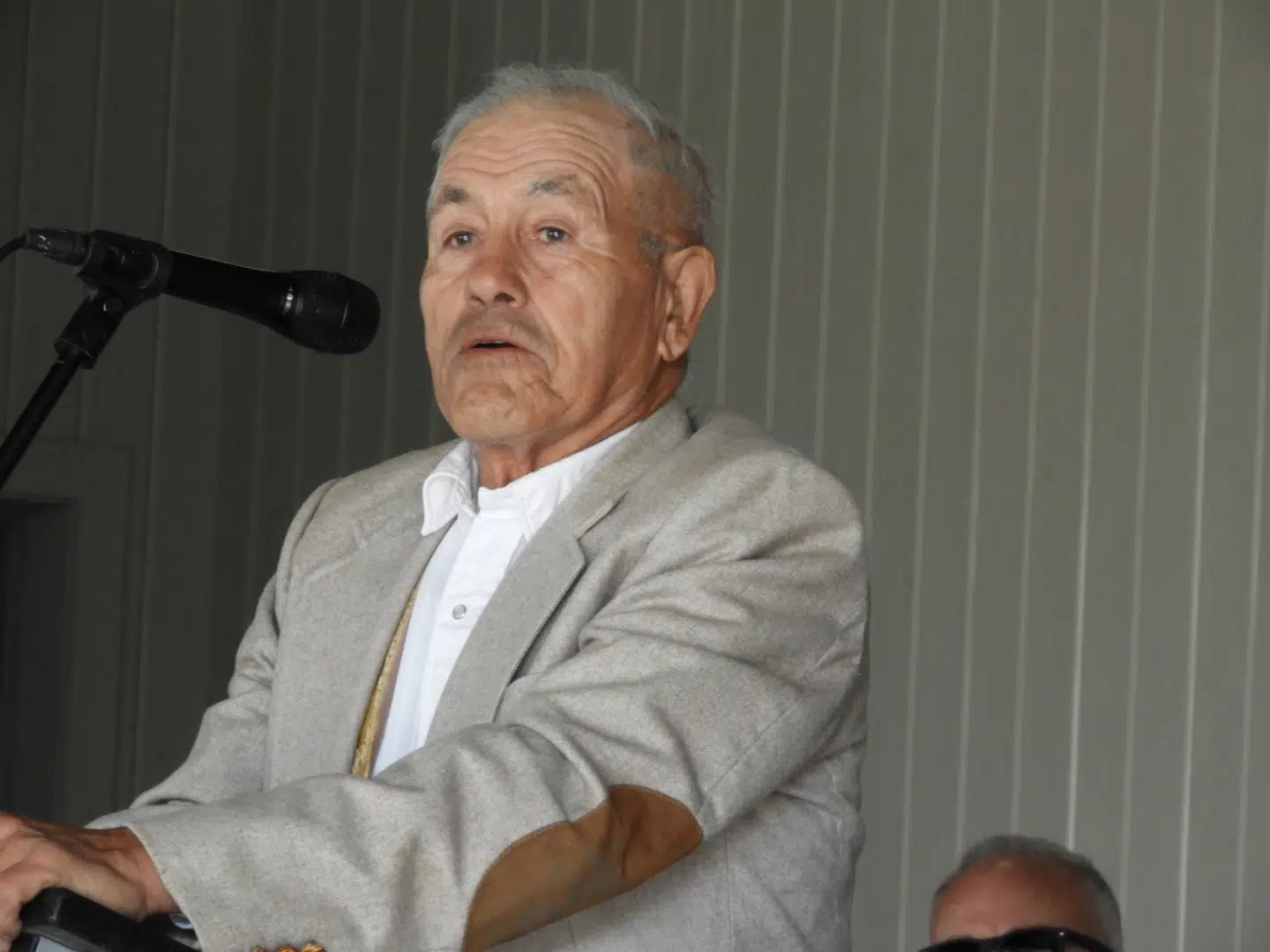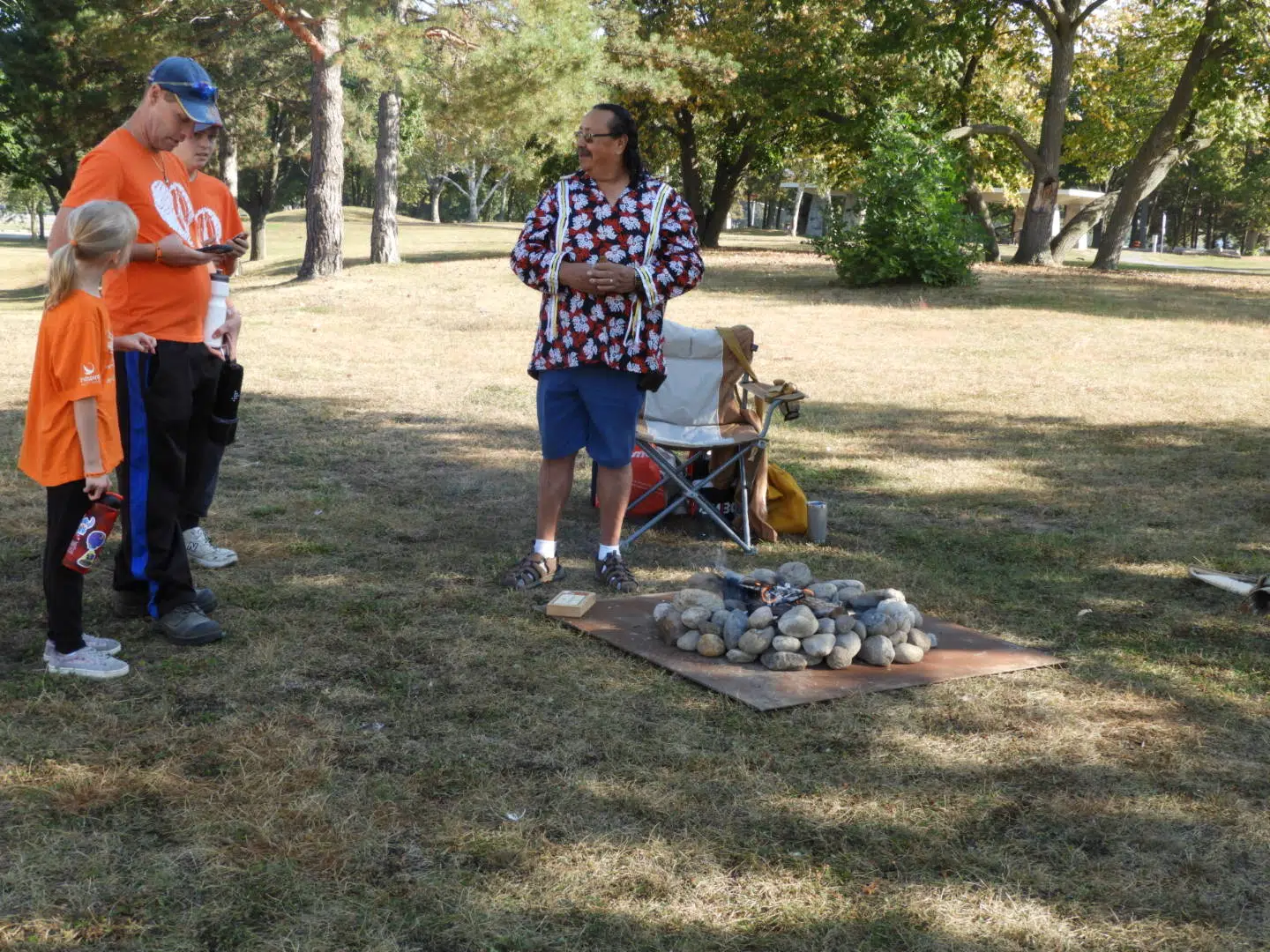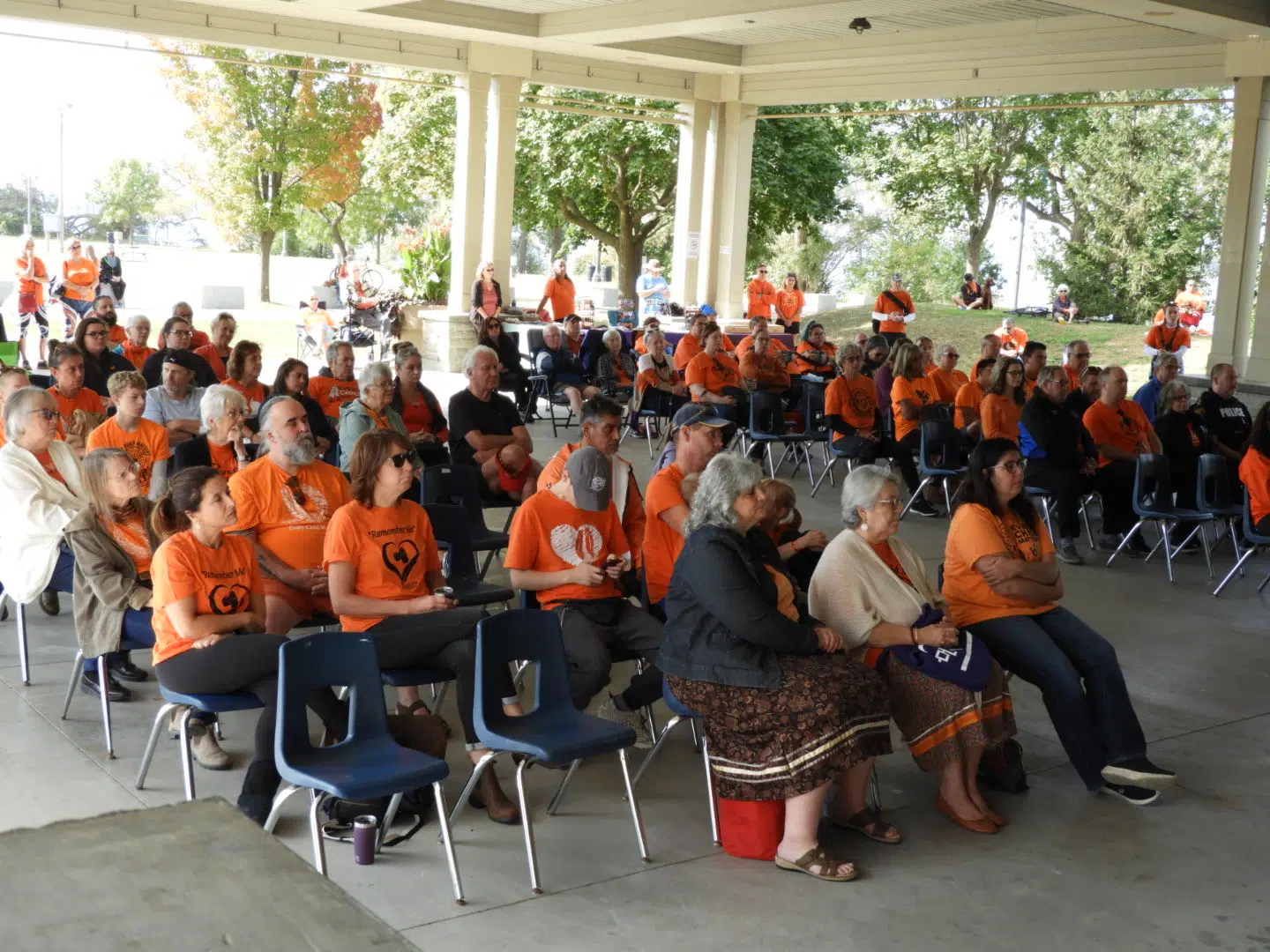It was a bright sunny day but for almost 200 orange clad people in Belleville it was a day to learn and reflect upon a very dark part of Canada’s history, the several decades after 1880 when the residential school system was in place.
The city held a special Truth and Reconciliation Ceremony at West Zwick’s Park.
About 150,000 young First Nations children were taken from their families and placed in government-sponsored, Christian, church-run schools whose primary goal was explained by the Chief of the Mohawks of the Bay of Quinte R Don Maracle.

Chief of the Mohawks of the Bay of Quinte R Don Maracle. (Photo: Quinte News)
“In those schools they were taught to hate their identity, that there was something inferior about it, not to speak the Mohawk language, to talk English, to not value any of their spirituality.”
“Younger people want to know who they are, not who the colonizing people wanted them to be. Oftentimes they search for language, they search for knowledge about what happened to our people, they want to know more.”
Chief Maracle said a National Day of Truth and Reconciliation was only a start, adding reconciliation needs to be worked on each and every day.
“It’s the doing that makes things better. We can pay lip service, we can have empathy and sympathy but that will not change a thing. You will know, but if you do nothing, then you are complicit, saying it’s okay.”
Maracle said Indigenous people had settled Canada thousands of years before white people arrived on shore and had never agreed to give up their culture or land. “Our first agreement was with the Dutch and all we did was to agree to share, not surrender. We became unwelcome in our own land.”
He went on to give a history of the relationships with white settlers including fighting wars both with them and against them.
“One hundred and one Tyendinaga Mohawk people fought in the First World War and 213 in the Second World War.”
Also speaking was the last Tyendinaga Mohawk to survive the residential school system, 88-year-old Wilbur Maracle.

The last Tyendinaga Mohawk survivor of the residential school system, 88-year-old Wilbur Maracle. (Photo: Quinte News)
“My mother was going with a guy who didn’t like us so she tried to get me and my brother to go to a residential school but we wouldn’t go. But one day she told us we were going to Brantford to visit and we ended up at a school and my mother, me and my brother stayed overnight in a room.
The next morning our mother wasn’t there and we were in a residential school. I was six years old and my brother was eight. I cried for six weeks. For 55 years I hated my mother. I finally apologized to her when she was 88.”
Maracle said he didn’t learn much at the residential school, with a half day of classes and a half day of hard work on the school’s farm, six days a week.
“I can’t spell worth a darn. But I know how to work and I’ve farmed all of my life. When I was nine I was looking after 35 head of cattle at that Brantford school.”
Maracle stressed how important family was saying, “Don’t give up on family. I know what it’s like to be a kid without family and it was no good.”
Maracle became a welder, as well as a farmer, and built his own home by hand, beginning by straightening out nails which had been pulled from other structures.
“And I can still work and do stuff, and I’m out dancing three nights a week,” which brought applause and laughter from the crowd.
Also speaking at the ceremony were Mohawk author Tara White, former NHL goaltender Norm Maracle, Mayor Neil Ellis, MPPs Todd Smith and Ric Bresee, and Bonnie Jane Maracle. Music was provided by Jennifer Brant and Kieran Edwards.
The ceremony was sponsored by the City of Belleville and organized by Councillor Sean Kelly.

Tyendinaga Mohawk Fire Keeper Greg Loft educates a family about the “sacred fire” where people gather to let the smoke cleanse them of the stresses and wrongs encountered in everyday life. (Photo: Quinte News)






